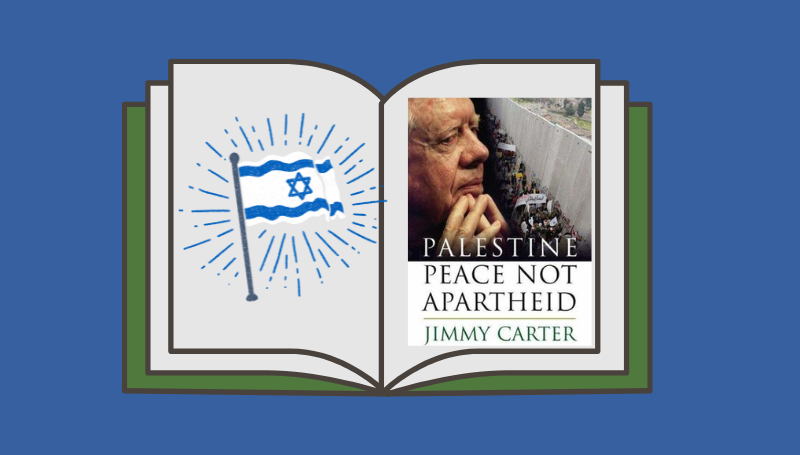Kenneth W. Stein
Middle East Forum, Spring 2007, Volume 14: Number 2
“Among the most troubling aspects of Palestine: Peace Not Apartheid is Carter’s apparent willingness to condone the killing of Israelis.”
Jimmy Carter’s engagement in foreign affairs as a former president is unprecedented in U.S. history. Because he regards the Arab-Israeli conflict as among Washington’s most important foreign policy topics, he has written more than two dozen articles and commentaries about the conflict, eight in the past year alone. In these publications, Carter uses his credibility as a former president, Nobel laureate, and key player in the September 1978 Camp David accords and the Egypt-Israel peace treaty to unfold his set of truths and often to criticize U.S. policy. He relishes the role of elder statesman and believes that with his accrued wisdom and experience, he can contribute to solutions.
But Palestine: Peace Not Apartheid,[1] Carter’s twenty-first book and his second to focus on the Arab-Israeli conflict, is deficient. He does what no non-fiction author should ever do: He allows ideology or opinion to get in the way of facts. While Carter says that he wrote the book to educate and provoke debate, the narrative aims its attack toward Israel, Israeli politicians, and Israel’s supporters. It contains egregious errors of both commission and omission. To suit his desired ends, he manipulates information, redefines facts, and exaggerates conclusions. Falsehoods, when repeated and backed by the prestige of Carter’s credentials, can comprise an erroneous baseline for shaping and reinforcing attitudes and policymaking. Rather than bring peace, they can further fuel hostilities, encourage retrenchment, and hamper peacemaking.
“Remember Ken, Only One of Us Was President”
I first met Carter at a 1982 reception welcoming him to Emory University. He invited me to serve as the Carter Center’s first permanent executive director, a position I held between 1983 and 1986, and as the center’s Middle East fellow, an association I continued until December 2006 when I resigned that post over both the inaccuracies in Palestine: Peace Not Apartheid and its message, which contradicts the Carter Center’s founding purposes.
My tasks as Middle East fellow included writing memoranda for Carter about Middle Eastern issues, taking notes at virtually all Carter meetings that addressed Middle Eastern issues, preparing a monthly analysis of events, coordinating major Middle East conferences, and planning Middle Eastern trips. I accompanied Carter as a political adviser and press liaison on three lengthy Middle Eastern trips in March 1983, March 1987, and March 1990.
As we collaborated on The Blood of Abraham,[2] Carter’s first book about the Middle East, I witnessed Carter’s passion, determination, and stubbornness. He was capable of absorbing vast amounts of information, and he had an extraordinary capacity to recall detailed points and concepts almost verbatim months after reading them. …SOURCE


